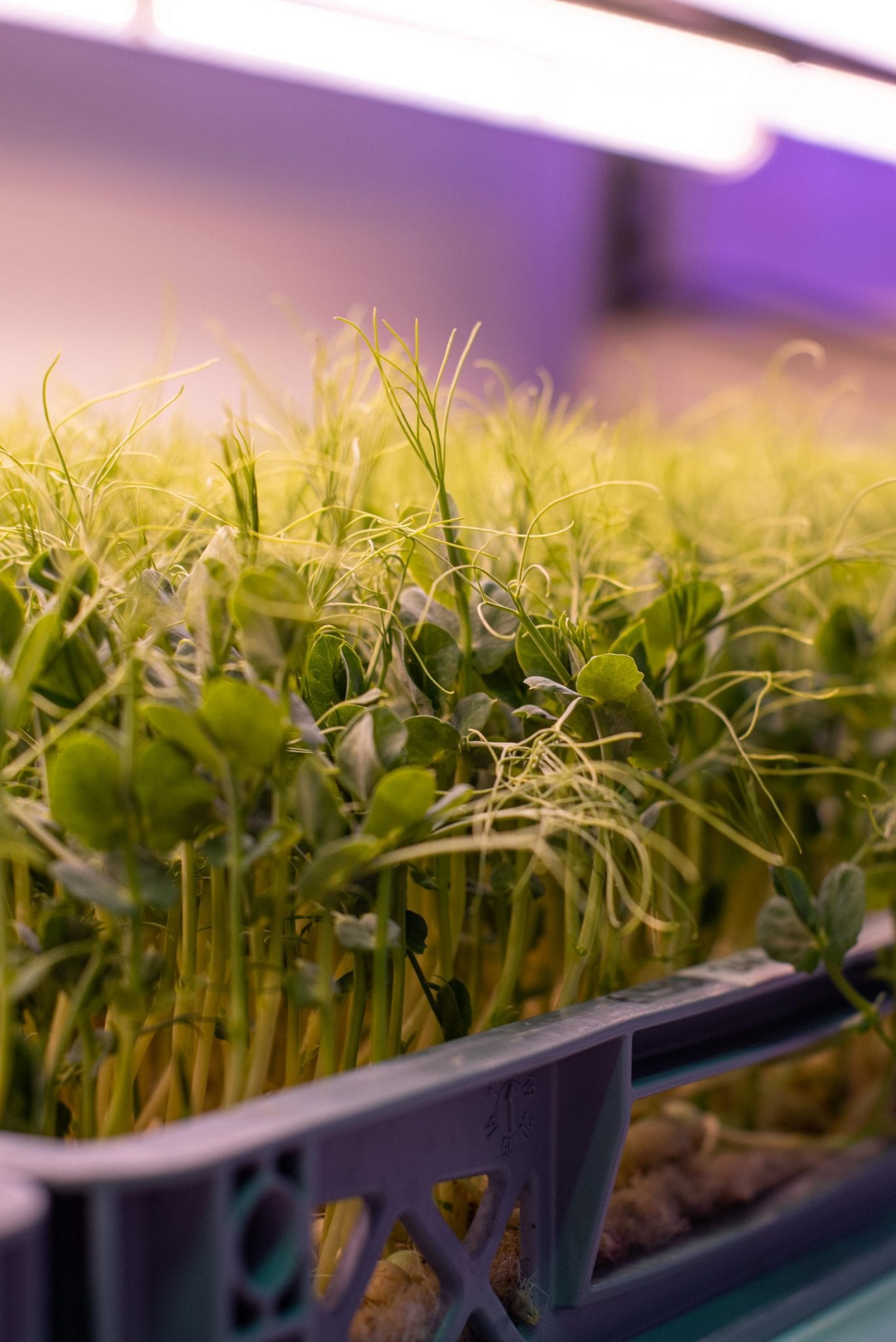
...plants love aeroponics
Vertical farming is on the rise. Many people are becoming aware of the potential of indoor and vertical farming. It allows crops to be grown year-round, regardless of weather conditions, and can also relieve pressure on farmland soil by making use of urban or derelict space.
Currently, hydroponic systems are the most common in vertical farming. In this system, plant roots are immersed in a nutrient rich solution. CHAP member LettUs Grow has replaced this with an aeroponic system that uses a nutrient-dense mist. This change has resulted in growth rate increases of over 70% across a range of crops.
Here are five reasons plants love aeroponics:
1 Access to nutrients
In aeroponics, instead of submerging plant roots in soil or water, roots are exposed to a nutrient-dense mist. This mist deposits on their root hair cells and provides them with all the water and nutrients that they need to grow. Aeroponic systems result in far greater precision of nutrient application, as the quantity of mist produced can easily be fine tuned per grow bed, rather than the more centralised distribution of water in many hydroponic systems.
2 Access to oxygen
In an aeroponic system, plant roots are suspended in air, instead of in soil or water, and within the chamber they have access to atmospheric levels of important gases such as oxygen. This allows far greater levels of root gas exchange than in traditional hydroponic systems and indoor farming methods, which boosts plant health and rate of growth. Well-aerated root chambers also prevent water-logging, which protects plants from oxygen deprived conditions. Simply put, overwatering a plant can drown it and an aeroponic system ensures this can never happen.
3 Optimal irrigation
Irrigation can be controlled on a crop by crop basis. The level of nutrients, water and gases provided to crops can be tailored to the plant’s individual requirements and adjusted depending on the plant’s developmental stage. This means it is possible to control and optimise plant health consistently.
4 Reduced chance of disease
An indoor system is treated as a “high-care environment” and the accessibility of roots means plants are less prone to mould or other infections. This is in large part due to the crop seeds and growth media staying dry. Aeroponics uses 95% less water than traditional agriculture by recycling water through recapture and reuse. Using UV sterilisation and proper filtration within this process ensures that the chances of pests or disease outbreaks are kept to a minimum.
5 Pesticide free
The nature of controlled environment agriculture also means that it is not necessary to expose plants to toxic pesticides – making the system healthier for the plant, but also for consumers and the environment. Increasingly growers make use of integrated pest management (IPM) principles to utilise biological control measures, which further protects both crops and customers without the need for pesticides.
Photo: Jack Wiseall
LettUs Grow was founded in 2015 to tackle some of the greatest challenges facing the world – CO2 emissions, waste, ecosystem collapse and food security. The company designs modular, aeroponic irrigation and intelligent control technology to improve the efficiency, sustainability and ROI of indoor farming and believes its novel technology represents a step-change for indoor farms. For more information go to LettUs Grow.
CHAP’s CEA solution has a range of capabilities, all working to expand the boundaries of what can be grown in controlled environments, with a focus on commercial viability. For more information, go to Advanced Glasshouse, IHCEA, NLG Centre, and Vertical Farming Development Centre, or email us at enquiries@chap-solutions.co.uk










